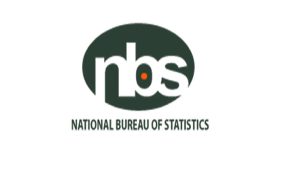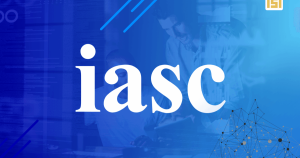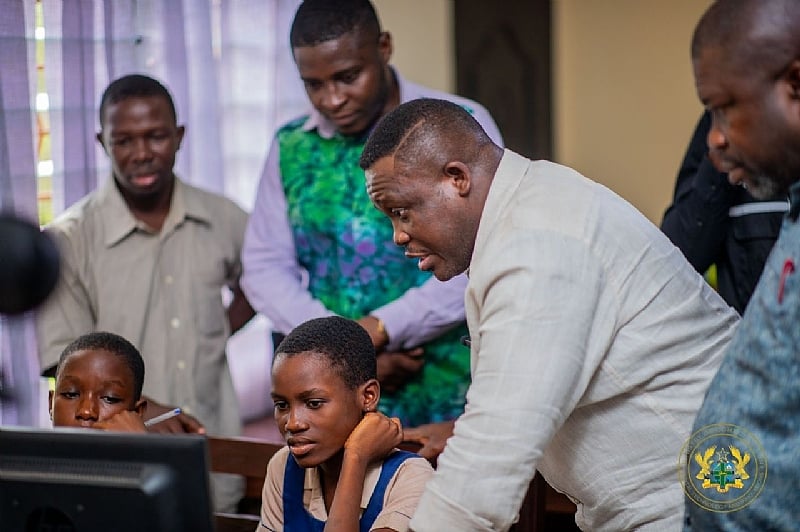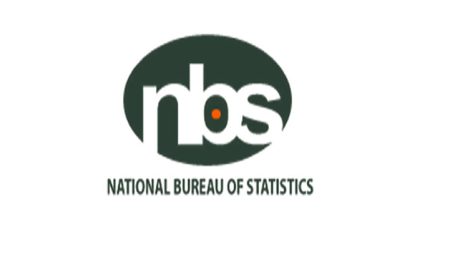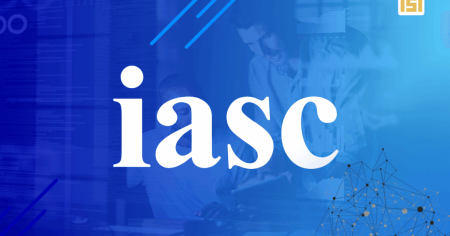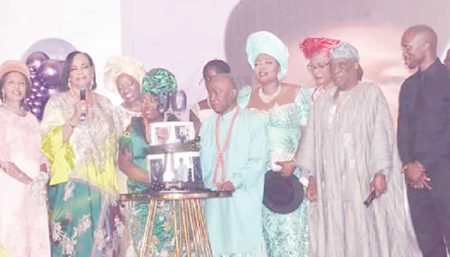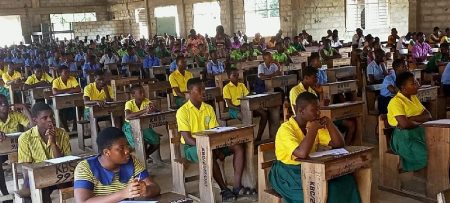The Girls-In-ICT program, a flagship initiative of the Ministry of Communication, Digital Technology, and Innovations in Ghana, aims to bridge the digital divide and empower young girls with essential skills for the future. Hon. Samuel Nartey George, the Minister, embarked on a working visit to training centers in the Volta Region, underscoring the government’s commitment to fostering digital literacy and STEM education among girls. His visit encompassed two key locations: In My Fathers House, RC Basic School in Abor-Keta Municipal and the Amissah-Arthur Learning Centre in Ohawu, Ketu North District. The Minister’s presence served as a source of encouragement for the participating girls, emphasizing the transformative potential of digital skills in shaping their futures. The program’s overarching goal is to equip 3,000 girls and 300 teachers with vital digital competencies, aligning with the government’s broader vision of a digitally inclusive society.
The Girls-In-ICT program represents a significant step towards creating a level playing field for girls in the realm of technology. Hon. Nartey George highlighted the program’s sustained impact, emphasizing that it extends beyond a mere calendar event. It signifies a dedicated effort to cultivate a new generation of digitally proficient girls, prepared to thrive in an increasingly technology-driven world. The Minister acknowledged the invaluable contributions of local officials, including the District Chief Executive (DCE) and Hon. Kwame Garkpey, Member of Parliament for Keta Municipality, whose unwavering support and advocacy for ICT education have played a pivotal role in the program’s success. Beyond equipping girls with digital skills, the Ministry also prioritizes providing resources to schools and training teachers. This comprehensive approach aims to ensure wider access to digital education, promoting equity and inclusivity in the digital landscape.
The Ministry’s commitment to the Girls-In-ICT program is further solidified through the Ghana Investment Fund for Electronic Communications (GIFEC), the implementing agency. GIFEC plays a crucial role in extending digital literacy initiatives to every corner of the country, ensuring that no community is left behind in the digital revolution. Hon. Nartey George emphasized the President’s strong support for the program, underscoring its significance as a national priority. The government’s investment in training not only the girls but also their teachers, coupled with equipping schools with necessary resources, demonstrates a holistic approach to fostering digital literacy. This comprehensive strategy aims to create a ripple effect, benefiting not just the participants but also their peers and the wider community.
The Minister’s visit to the Volta Region served as a platform to inspire the girls, urging them to embrace the opportunity to acquire digital skills and pursue careers in STEM fields. He shared a personal anecdote about his sister, an accomplished engineer, highlighting the potential for women to excel in traditionally male-dominated fields. He drew parallels to Farida Bedwei, a celebrated Ghanaian software developer who has achieved global recognition despite facing physical challenges. Hon. Nartey George encouraged the girls to emulate such role models and strive for excellence in their chosen fields.
Hon. James Gunu, the Volta Regional Minister, expressed his gratitude to Hon. Nartey George, his team, and the dedicated facilitators who work tirelessly behind the scenes to make the program a success. He commended the Ministry’s efforts in empowering girls through digital education and emphasized the importance of such initiatives in promoting regional development. He urged all participating girls to seize the opportunity presented by the Girls-In-ICT program and leverage their newfound skills to shape a brighter future for themselves and their communities. The program is not merely about acquiring technical skills but also about fostering confidence, creativity, and critical thinking—essential attributes for success in the 21st century.
The Girls-In-ICT program, championed by the Ministry and implemented by GIFEC, is a testament to the government’s commitment to bridging the digital gender gap and empowering girls with essential skills for the future. By investing in training, resources, and mentorship, the program fosters a nurturing environment for girls to explore the world of technology and unlock their full potential. The program’s success hinges on the collaborative efforts of government agencies, local officials, teachers, and the girls themselves, all working together to create a digitally inclusive society where every individual has the opportunity to thrive. Through sustained investment and unwavering commitment, the Girls-In-ICT program is paving the way for a new generation of digitally empowered women who will shape the future of Ghana.


